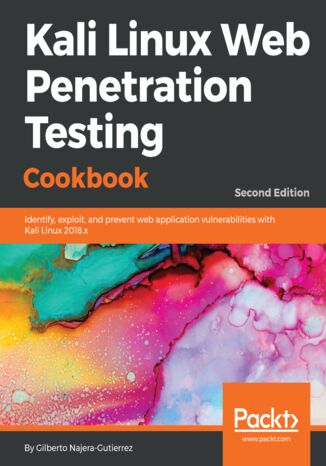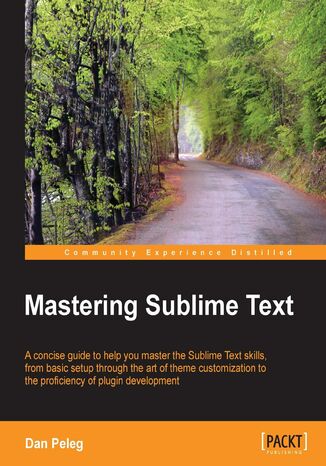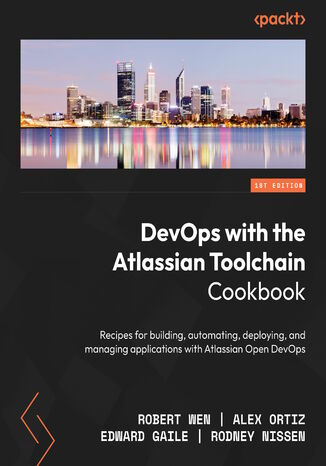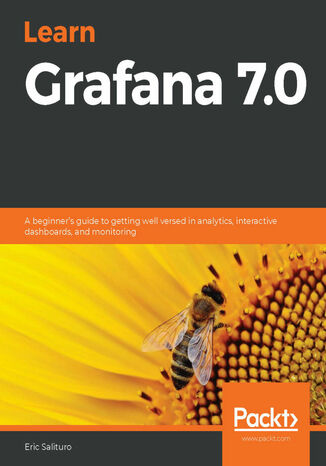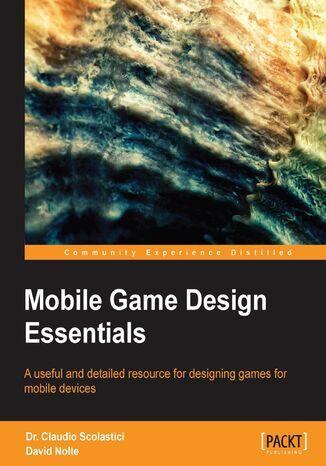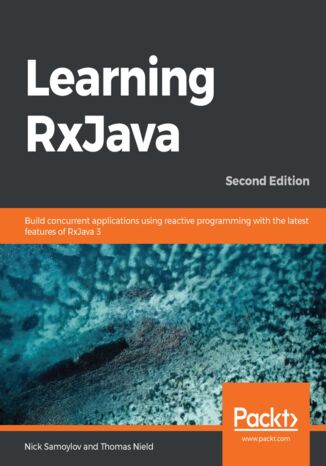Kategorie
-
- Bitcoin
- Bizneswoman
- Coaching
- Controlling
- E-biznes
- Ekonomia
- Finanse
- Giełda i inwestycje
- Kompetencje osobiste
- Komputer w biurze
- Komunikacja i negocjacje
- Mała firma
- Marketing
- Motywacja
- Multimedialne szkolenia
- Nieruchomości
- Perswazja i NLP
- Podatki
- Polityka społeczna
- Poradniki
- Prezentacje
- Przywództwo
- Public Relation
- Raporty, analizy
- Sekret
- Social Media
- Sprzedaż
- Start-up
- Twoja kariera
- Zarządzanie
- Zarządzanie projektami
- Zasoby ludzkie (HR)
-
- Architektura i wnętrza
- BHP
- Biznes i Ekonomia
- Dom i ogród
- E-Biznes
- Ekonomia i finanse
- Ezoteryka
- Finanse
- Finanse osobiste
- Firma
- Fotografia
- Informatyka
- Kadry i płace
- Kobieca
- Komputery, Excel
- Księgowość
- Kultura i literatura
- Naukowe i akademickie
- Ochrona środowiska
- Opiniotwórcze
- Oświata
- Podatki
- Podróże
- Psychologia
- Religia
- Rolnictwo
- Rynek książki i prasy
- Transport i Spedycja
- Zdrowie i uroda
-
- Aplikacje biurowe
- Bazy danych
- Bioinformatyka
- Biznes IT
- CAD/CAM
- Digital Lifestyle
- DTP
- Elektronika
- Fotografia cyfrowa
- Grafika komputerowa
- Gry
- Hacking
- Hardware
- IT w ekonomii
- Pakiety naukowe
- Podręczniki szkolne
- Podstawy komputera
- Programowanie
- Programowanie mobilne
- Serwery internetowe
- Sieci komputerowe
- Start-up
- Systemy operacyjne
- Sztuczna inteligencja
- Technologia dla dzieci
- Webmasterstwo
-
- Antologie
- Ballada
- Biografie i autobiografie
- Dla dorosłych
- Dramat
- Dzienniki, pamiętniki, listy
- Epos, epopeja
- Esej
- Fantastyka i science-fiction
- Felietony
- Fikcja
- Humor, satyra
- Inne
- Klasyczna
- Kryminał
- Literatura faktu
- Literatura piękna
- Mity i legendy
- Nobliści
- Nowele
- Obyczajowa
- Okultyzm i magia
- Opowiadania
- Pamiętniki
- Podróże
- Poemat
- Poezja
- Polityka
- Popularnonaukowa
- Powieść
- Powieść historyczna
- Proza
- Przygodowa
- Publicystyka
- Reportaż
- Romans i literatura obyczajowa
- Sensacja
- Thriller, Horror
- Wywiady i wspomnienia
-
- Archeologia
- Bibliotekoznawstwo
- Filmoznawstwo
- Filologia
- Filologia polska
- Filozofia
- Finanse i bankowość
- Geografia
- Gospodarka
- Handel. Gospodarka światowa
- Historia i archeologia
- Historia sztuki i architektury
- Kulturoznawstwo
- Lingwistyka
- Literaturoznawstwo
- Logistyka
- Matematyka
- Medycyna
- Nauki humanistyczne
- Pedagogika
- Pomoce naukowe
- Popularnonaukowa
- Pozostałe
- Psychologia
- Socjologia
- Teatrologia
- Teologia
- Teorie i nauki ekonomiczne
- Transport i spedycja
- Wychowanie fizyczne
- Zarządzanie i marketing
-
- BHP
- Historia
- Kodeks drogowy. Prawo jazdy
- Nauki prawne
- Ochrona zdrowia
- Ogólne, kompendium wiedzy
- Podręczniki akademickie
- Pozostałe
- Prawo budowlane i lokalowe
- Prawo cywilne
- Prawo finansowe
- Prawo gospodarcze
- Prawo gospodarcze i handlowe
- Prawo karne
- Prawo karne. Przestępstwa karne. Kryminologia
- Prawo międzynarodowe
- Prawo międzynarodowe i zagraniczne
- Prawo ochrony zdrowia
- Prawo oświatowe
- Prawo podatkowe
- Prawo pracy i ubezpieczeń społecznych
- Prawo publiczne, konstytucyjne i administracyjne
- Prawo rodzinne i opiekuńcze
- Prawo rolne
- Prawo socjalne, prawo pracy
- Prawo Unii Europejskiej
- Przemysł
- Rolne i ochrona środowiska
- Słowniki i encyklopedie
- Zamówienia publiczne
- Zarządzanie
-
- Afryka
- Albumy
- Ameryka Południowa
- Ameryka Środkowa i Północna
- Australia, Nowa Zelandia, Oceania
- Austria
- Azja
- Bałkany
- Bliski Wschód
- Bułgaria
- Chiny
- Chorwacja
- Czechy
- Dania
- Egipt
- Estonia
- Europa
- Francja
- Góry
- Grecja
- Hiszpania
- Holandia
- Islandia
- Litwa
- Łotwa
- Mapy, Plany miast, Atlasy
- Miniprzewodniki
- Niemcy
- Norwegia
- Podróże aktywne
- Polska
- Portugalia
- Pozostałe
- Przewodniki po hotelach i restauracjach
- Rosja
- Rumunia
- Słowacja
- Słowenia
- Szwajcaria
- Szwecja
- Świat
- Turcja
- Ukraina
- Węgry
- Wielka Brytania
- Włochy
-
- Filozofie życiowe
- Kompetencje psychospołeczne
- Komunikacja międzyludzka
- Mindfulness
- Ogólne
- Perswazja i NLP
- Psychologia akademicka
- Psychologia duszy i umysłu
- Psychologia pracy
- Relacje i związki
- Rodzicielstwo i psychologia dziecka
- Rozwiązywanie problemów
- Rozwój intelektualny
- Sekret
- Seksualność
- Uwodzenie
- Wygląd i wizerunek
- Życiowe filozofie
-
- Bitcoin
- Bizneswoman
- Coaching
- Controlling
- E-biznes
- Ekonomia
- Finanse
- Giełda i inwestycje
- Kompetencje osobiste
- Komunikacja i negocjacje
- Mała firma
- Marketing
- Motywacja
- Nieruchomości
- Perswazja i NLP
- Podatki
- Polityka społeczna
- Poradniki
- Prezentacje
- Przywództwo
- Public Relation
- Sekret
- Social Media
- Sprzedaż
- Start-up
- Twoja kariera
- Zarządzanie
- Zarządzanie projektami
- Zasoby ludzkie (HR)
-
- Antologie
- Ballada
- Biografie i autobiografie
- Dla dorosłych
- Dramat
- Dzienniki, pamiętniki, listy
- Epos, epopeja
- Esej
- Fantastyka i science-fiction
- Felietony
- Fikcja
- Humor, satyra
- Inne
- Klasyczna
- Kryminał
- Literatura faktu
- Literatura piękna
- Mity i legendy
- Nobliści
- Nowele
- Obyczajowa
- Okultyzm i magia
- Opowiadania
- Pamiętniki
- Podróże
- Poezja
- Polityka
- Popularnonaukowa
- Powieść
- Powieść historyczna
- Proza
- Przygodowa
- Publicystyka
- Reportaż
- Romans i literatura obyczajowa
- Sensacja
- Thriller, Horror
- Wywiady i wspomnienia
-
- Filozofie życiowe
- Komunikacja międzyludzka
- Mindfulness
- Ogólne
- Perswazja i NLP
- Psychologia akademicka
- Psychologia duszy i umysłu
- Psychologia pracy
- Relacje i związki
- Rodzicielstwo i psychologia dziecka
- Rozwiązywanie problemów
- Rozwój intelektualny
- Sekret
- Seksualność
- Uwodzenie
- Wygląd i wizerunek
- Życiowe filozofie
Web applications are a huge point of attack for malicious hackers and a critical area for security professionals and penetration testers to lock down and secure. Kali Linux is a Linux-based penetration testing platform that provides a broad array of testing tools, many of which can be used to execute web penetration testing. Kali Linux Web Penetration Testing Cookbook gives you the skills you need to cover every stage of a penetration test – from gathering information about the system and application, to identifying vulnerabilities through manual testing. You will also cover the use of vulnerability scanners and look at basic and advanced exploitation techniques that may lead to a full system compromise. You will start by setting up a testing laboratory, exploring the latest features of tools included in Kali Linux and performing a wide range of tasks with OWASP ZAP, Burp Suite and other web proxies and security testing tools. As you make your way through the book, you will learn how to use automated scanners to find security ?aws in web applications and understand how to bypass basic security controls. In the concluding chapters, you will look at what you have learned in the context of the Open Web Application Security Project (OWASP) and the top 10 web application vulnerabilities you are most likely to encounter, equipping you with the ability to combat them effectively. By the end of this book, you will have acquired the skills you need to identify, exploit, and prevent web application vulnerabilities.
Sublime is the leading platform for developing websites, applications, and software. Sublime Text is a sophisticated, cross-platform text and source code editor. It supports a number of different programming languages and is extremely efficient and feature rich. With Sublime Text, programmers can develop their web applications faster and with more efficiency.This book will put you at the frontier of modern software development. It will teach you how to leverage Sublime for anything from mobile games to missile protection. Above all, this book will help you harness the power of other Sublime users and always stay on top.This book will show you how to get started, from basic installation through lightning fast code navigation and up to the development of your own plugins. It takes you from the early stages of navigating through the platform and moves on by teaching you how to fully customize your platform, test, debug, and eventually create and share your own plugins to help and lead this community forward.The book will then teach you how to efficiently edit text, primarily by using the keyboard. You will learn how to interact with the Sublime Text community using the mailing lists and IRC.
Robert Wen, Alex Ortiz, Edward Gaile, Rodney Nissen
Implementing DevOps practices and toolchains for automated testing and deployment can accelerate product development with minimal errors in the production environment. However, creating DevOps toolchains by integrating tools from various vendors presents challenges for both administrators and developers. Written by four well-known experts from the Atlassian community, this book addresses the complexities of DevOps toolchain creation and integration by leveraging Atlassian’s Open DevOps solution.Starting with a holistic overview of the DevOps and Atlassian Open DevOps solution, you’ll learn to integrate Jira with other tools. You’ll then find out how to create and integrate a CI/CD pipeline in Bitbucket for automated testing and deployment to Docker containers. With step-by-step guidance, you’ll connect Jira and Bitbucket with other tools, such as Snyk for security and SonarQube for testing, to form an extensive toolchain. You’ll also learn how Compass uses CheckOps for observability and how to use Confluence for documentation and reporting. Finally, you’ll leverage Opsgenie’s ChatOps functionality to enhance collaboration between developers and operations teams.By the end of this book, you’ll be able to establish your DevOps toolchain by integrating Atlassian tools to automate and optimize the software development lifecycle and beyond.
The way you choose to interact with your employees is a critical influence on your success as a manager, as well as determining the quality of your employees’ work and the tone of your office. Your superiors will make note of how you handle matters of management, and so will your employees. Many managers, especially when they are new to the role, can find themselves struggling and reacting blindly to situations rather than calmly choosing the correct management style. It’s essential that you be well equipped to handle your role as a manager.This handy guide takes you through the various elements of management style, and shows you how to decide on the best approach to take in a variety of situations and with different types of employee. Drawing on years of management expertise, it will enable you to bring out the best in your employees.Mastering Management Styles looks at the various components of management style and shows you how to combine them in the way that best suits each type of situation you’ll face. When should you be consultative with your employees? When should you be directive? How much coaching should you offer them, and how should you do it? How do you balance the interests of your employer with those of your employees? How do you distinguish between different types of employee? All of these topics are covered in this practical instruction manual for managers, providing you with a go-to set of analytical tools and hands-on strategies that will make you a much more effective and successful manager.
Grafana is an open-source analytical platform used to analyze and monitoring time-series data. This beginner's guide will help you get to grips with Grafana's new features for querying, visualizing, and exploring metrics and logs no matter where they are stored.The book begins by showing you how to install and set up the Grafana server. You'll explore the working mechanism of various components of the Grafana interface along with its security features, and learn how to visualize and monitor data using, InfluxDB, Prometheus, Logstash, and Elasticsearch. This Grafana book covers the advanced features of the Graph panel and shows you how Stat, Table, Bar Gauge, and Text are used. You'll build dynamic dashboards to perform end-to-end analytics and label and organize dashboards into folders to make them easier to find. As you progress, the book delves into the administrative aspects of Grafana by creating alerts, setting permissions for teams, and implementing user authentication. Along with exploring Grafana's multi-cloud monitoring support, you'll also learn about Grafana Loki, which is a backend logger for users running Prometheus and Kubernetes.By the end of this book, you'll have gained all the knowledge you need to start building interactive dashboards.
Critical Infrastructure Security. Cybersecurity lessons learned from real-world breaches
Discover the core of cybersecurity through gripping real-world accounts of the most common assaults on critical infrastructure – the body of vital systems, networks, and assets so essential that their continued operation is required to ensure the security of a nation, its economy, and the public’s health and safety – with this guide to understanding cybersecurity principles. From an introduction to critical infrastructure and cybersecurity concepts to the most common types of attacks, this book takes you through the life cycle of a vulnerability and how to assess and manage it. You’ll study real-world cybersecurity breaches, each incident providing insights into the principles and practical lessons for cyber defenders striving to prevent future breaches. From DDoS to APTs, the book examines how each threat activates, operates, and succeeds. Additionally, you’ll analyze the risks posed by computational paradigms, such as the advancement of AI and quantum computing, to legacy infrastructure. By the end of this book, you’ll be able to identify key cybersecurity principles that can help mitigate evolving attacks to critical infrastructure.
Claudio Scolastici, David M Nolte
The videogame industry is not affected by the economic crisis as the market expands each year. In addition to that, the mobile market offers the opportunity to small teams with limited budgets to create successful games that can compete with the big companies. This is a guide to help you take a share of this huge market.Mobile Game Design Essentials will teach you how to develop professional quality games for mobile platforms. You will learn how to take advantage of devices and their built-in technologies. Get to know the best software and programming languages to create videogames from scratch and detailed tutorials to get your hands dirty with the common practices of game development.Mobile Game Design Essentials introduces you to smartphones, their operating systems, and development environments. It describes in detail the roles required by an indie team of mobile developers, the most popular software to create graphics and audio for games, the most used programming languages, and the best game engines. It also provides several tutorials detailing efficient game development and prototyping.Starting with a description of the mobile platforms and the roles to cover when building up your own indie team, Mobile Game Design Essentials then provides a description of the techniques and software used to create graphics and audio for games and the coding languages and development environments used by programmers. It also aims to acquaint you with the best practices of mobile game design and development, by addressing the importance of the prototype-test-polish cycle and the analysis of the distinctive aspects of mobile game design. Finally, it concludes with a step-by-step guide to create the presentation document for your next mobile game.Mobile Game Design Essentials covers everything you need to know to get started in the mobile game industry; from collecting your team, recommendations on development software, to marketing and publication.
RxJava is not just a popular library for building asynchronous and event-based applications; it also enables you to create a cleaner and more readable code base. In this book, you’ll cover the core fundamentals of reactive programming and learn how to design and implement reactive libraries and applications.Learning RxJava will help you understand how reactive programming works and guide you in writing your first example in reactive code. You’ll get to grips with the workings of Observable and Subscriber, and see how they are used in different contexts using real-world use cases. The book will also take you through multicasting and caching to help prevent redundant work with multiple Observers. You’ll then learn how to create your own RxJava operators by reusing reactive logic. As you advance, you’ll explore effective tools and libraries to test and debug RxJava code. Finally, you’ll delve into RxAndroid extensions and use Kotlin features to streamline your Android apps.By the end of this book, you'll become proficient in writing reactive code in Java and Kotlin to build concurrent applications, including Android applications.

